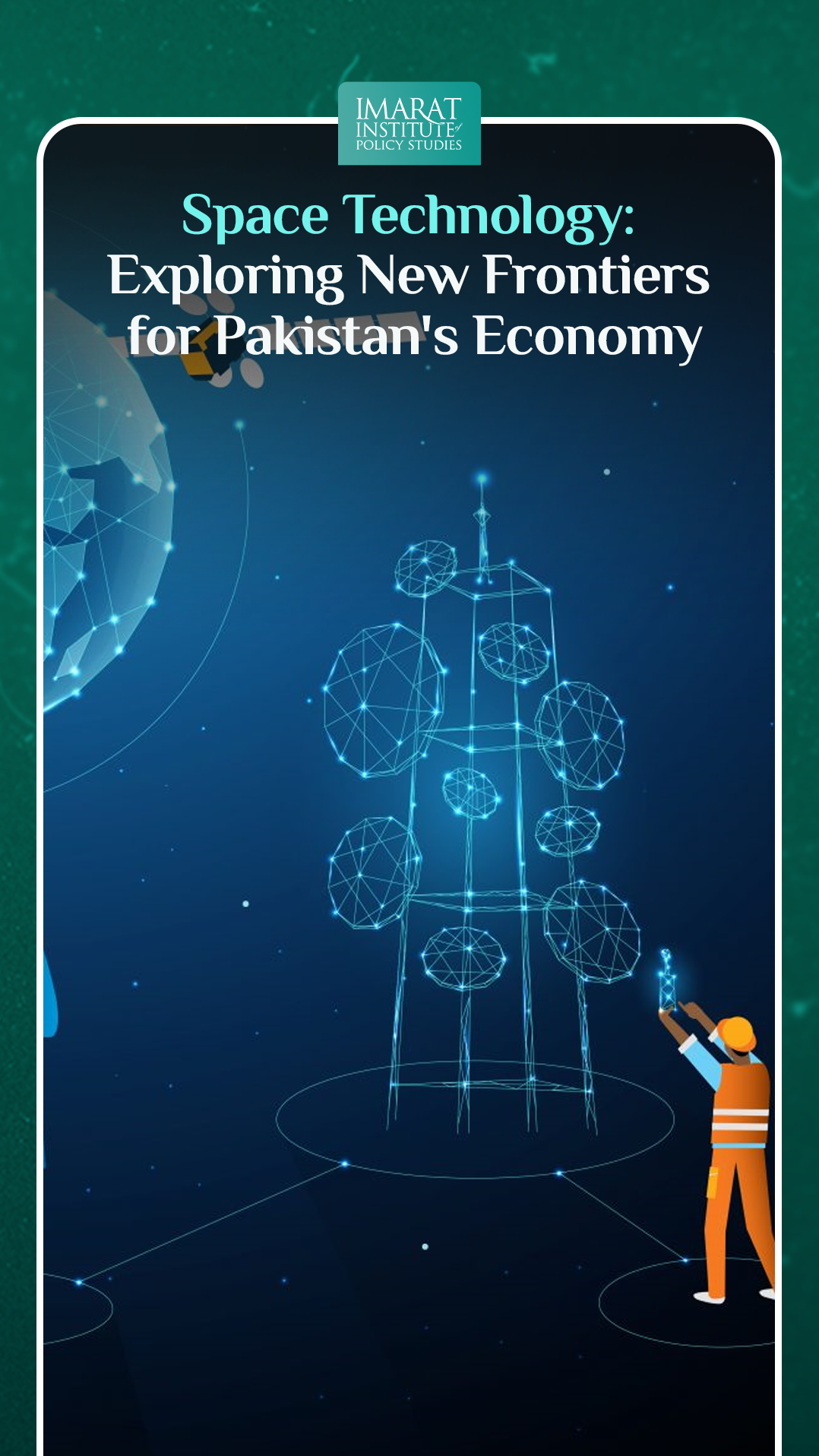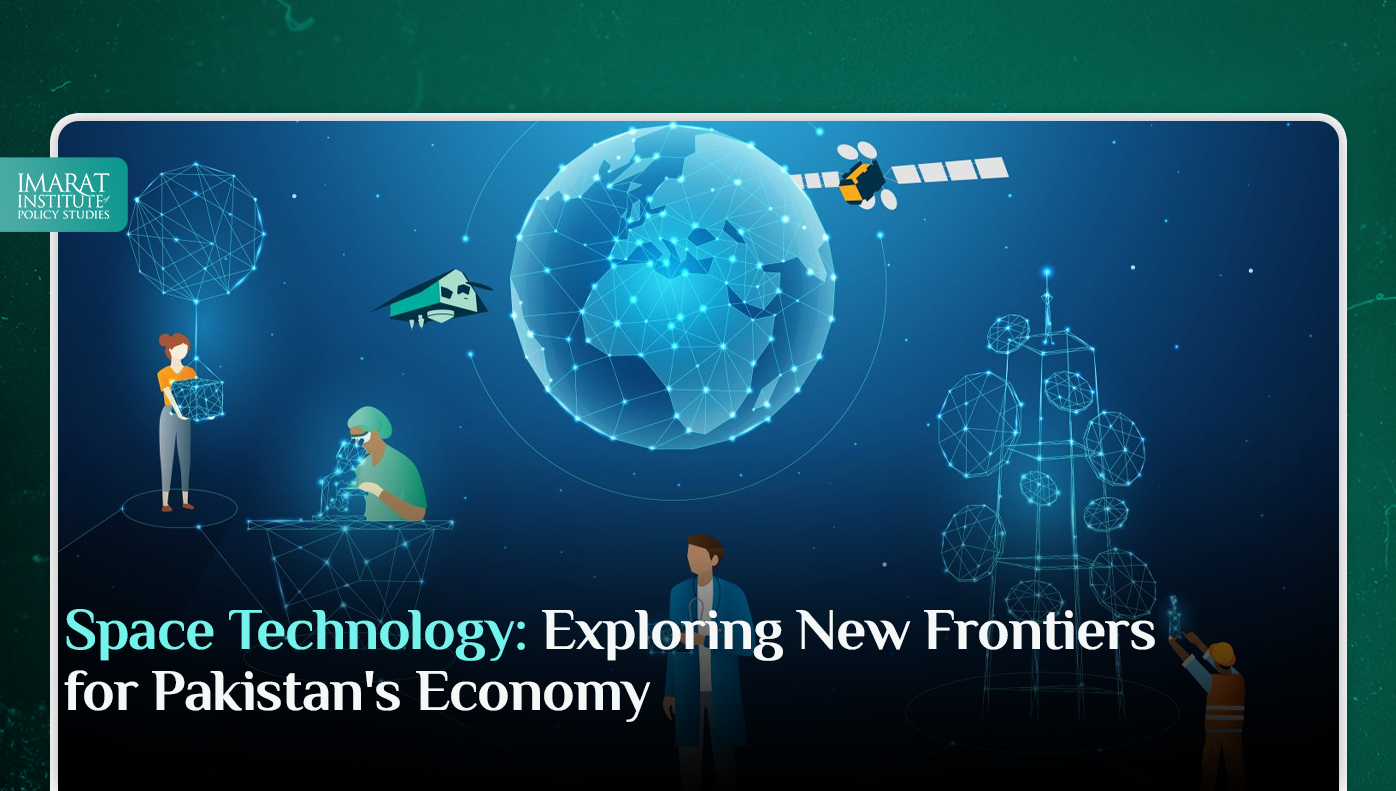In the realm of technological advancement, few frontiers captivate the imagination and promise as much potential as space exploration. For Pakistan, embracing space technology offers not just a glimpse into the cosmos but also a gateway to unlocking economic opportunities and societal advancement. This blog endeavors to delve into the myriad ways in which space technology is paving the way for Pakistan’s economic growth, innovation, and global competitiveness.
The Evolution of Pakistan’s Space Program
Pakistan’s entry into the realm of space exploration traces back to the historic establishment of the Space and Upper Atmosphere Research Commission (SUPARCO) in 1961. This monumental initiative marked the genesis of Pakistan’s journey towards harnessing the infinite possibilities of space technology. Over the subsequent decades, Pakistan has traversed a trajectory of scientific discovery and technological advancement, making remarkable strides in space technology. From launching satellites into orbit to conducting groundbreaking scientific research, Pakistan has solidified its presence in the global space arena. Collaborating with international partners, the nation has embraced a spirit of cooperation and knowledge exchange, propelling its space program to new heights. Today, Pakistan stands at the forefront of space technology, boasting a burgeoning space program that encompasses satellite development, remote sensing capabilities, and ambitious space exploration initiatives. With a commitment to innovation and a vision for the future, Pakistan has emerged as a regional leader in space technology, poised to unlock new frontiers and realize the boundless potential of the cosmos.
Satellite Technology: Driving Connectivity and Communication
Satellite technology lies at the heart of Pakistan’s space endeavors, offering solutions to address critical challenges and drive economic growth. Satellites enable vital services such as telecommunications, broadcasting, navigation, and weather forecasting, connecting remote regions, empowering businesses, and enhancing disaster management capabilities. By investing in satellite development and launching initiatives, Pakistan can expand its space-based infrastructure, bridge the digital divide, and stimulate economic development across sectors.
Remote Sensing: Monitoring Resources and Environmental Conservation
Remote sensing technology, facilitated by satellites orbiting the Earth, provides invaluable insights into natural resources, environmental changes, and land use patterns. In Pakistan, remote sensing applications play a crucial role in agriculture, water management, urban planning, and environmental conservation efforts. By leveraging satellite imagery and data analytics, policymakers can make informed decisions, optimize resource allocation, and mitigate the impacts of natural disasters, ultimately fostering sustainable development and resilience.
Space Exploration: Inspiring Innovation and Scientific Discovery
While Pakistan’s space program has primarily focused on satellite technology and Earth observation, there is growing interest and potential for space exploration initiatives. Exploring celestial bodies such as the Moon, Mars, and beyond not only pushes the boundaries of human knowledge but also catalyzes innovation, inspires the next generation of scientists and engineers, and fosters international collaboration. By investing in space exploration research and missions, Pakistan can position itself as a player in the global space community, contributing to scientific discovery and technological advancement.
Commercial Opportunities: Spurring Economic Growth and Entrepreneurship
Space technology presents a wealth of commercial opportunities that extend beyond government-sponsored programs. The rise of the private space sector, fueled by advancements in launch technology and reduced costs, opens doors for Pakistani entrepreneurs and businesses to enter the space industry. From satellite manufacturing and launch services to data analytics and space tourism, the commercialization of space offers avenues for innovation, job creation, and economic diversification, propelling Pakistan’s economy into new frontiers.
International Collaboration: Leveraging Partnerships for Mutual Benefit
In an increasingly interconnected world, collaboration with international partners is essential for the success of Pakistan’s space endeavors. By forging strategic partnerships with space agencies, research institutions, and private companies from around the globe, Pakistan can access expertise, resources, and opportunities for joint research and development. Moreover, international collaboration fosters knowledge exchange, capacity building, and diplomatic ties, enhancing Pakistan’s standing in the global space community and facilitating mutual progress and prosperity.
Conclusion
In conclusion, space technology holds immense promise for Pakistan’s economy, offering a gateway to economic growth, innovation, and global competitiveness. From satellite technology and remote sensing to space exploration and commercial opportunities, the possibilities are limitless. By investing in space research, fostering collaboration, and nurturing a culture of innovation and entrepreneurship, Pakistan can harness the transformative power of space technology to address societal challenges, drive economic development, and propel the nation towards a brighter future among the stars.
This article is written by Radma Nouman. Radma is a research analyst at the Iqbal Institute of Policy Studies (IIPS).



Leave a Reply